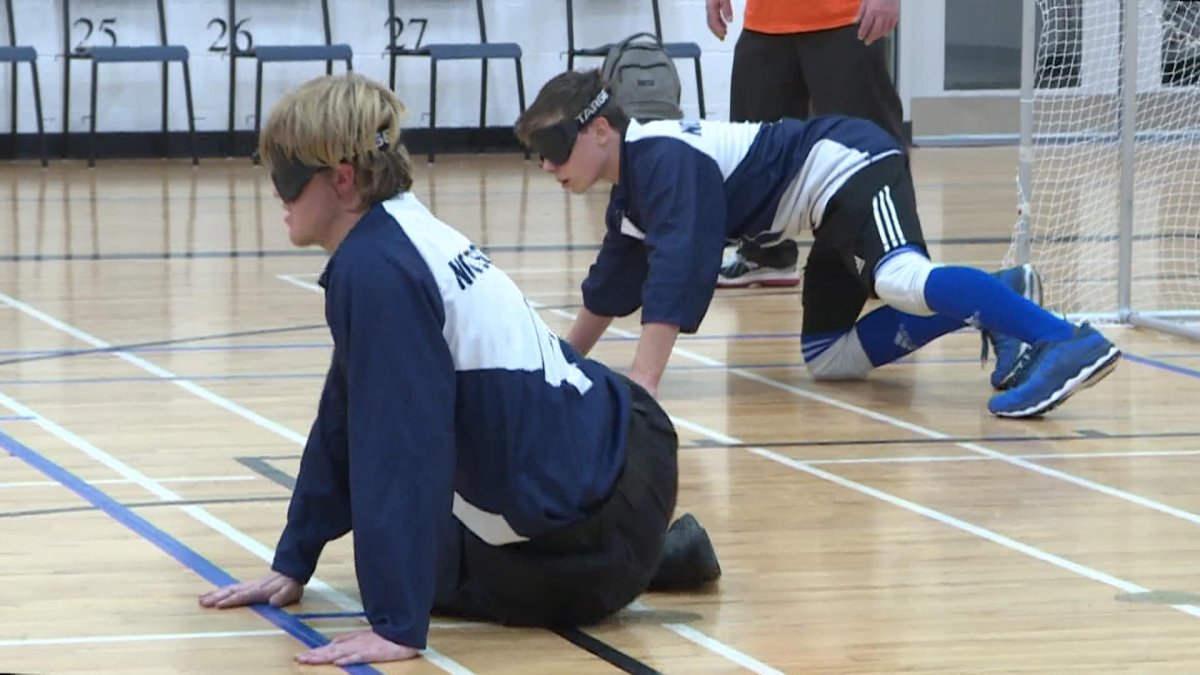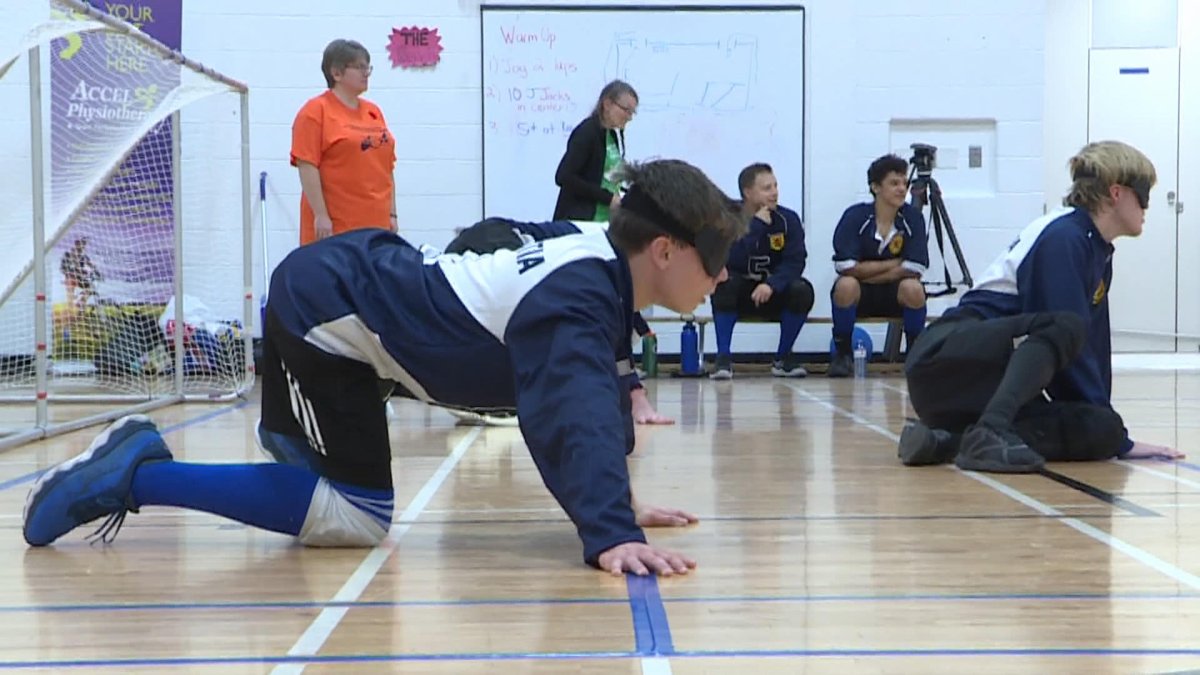Athletes from across North America came to Halifax this weekend for the 6th annual Nova Scotia Open Goalball tournament.

Some of the athletes taking part will represent Team Canada at the goalball world championships next month, including Peter Parsons, who was playing this weekend for Team Nova Scotia.
“We have my national teammates here playing with their various provinces. It’s a tournament where people are ramping up, getting ready for those world championships, so we have the best players from across the country here competing.”
READ MORE: New Brunswick teen creates robotic guide dog
Goalball is a sport exclusively for those with visual impairments and is a Paralympics sport.
Since each player will have a varying degree of visual impairment, they all wear dark eye shades on the court.
“The eye shades can ensure an equal playing field,” said Parsons. “Nobody on the court can see anything, so we’re using all our other senses.”
The ball, which is roughly the size of a basketball, has bells inside so players can follow it by listening to the jingle.
The lines on the court are created using tape and string so that players can feel them with their hands and feet.
“So we have to stay oriented on the court by feeling the lines and communicating with each other,” said Parsons.
“It is easy to get disoriented when you first stay playing … with lots of practice, usually you know where you are on the court at all times,” he said.
Parsons has been playing the sport for nearly two decades and says it was its competitiveness and teamwork that intrigued him.
“When I played my first tournament, that’s when I was hooked,” he said.

Get daily National news
“There’s a number of sports that are adapted for visually impaired and blind people, but goalball is its own sport. It’s not a sport that has a mainstream counterpart.”

When he’s not playing himself, Parsons coaches younger players.
“We have one of the strongest junior programs in the country,” he said.
“We have a 13-year-old and a couple of 17-year-olds here this weekend playing that have big potential in the sport,” said Parsons.
“It’s really rewarding and exciting to see them coming up and getting this type of experience.”
At just 13 years old, Harry Nickerson is the youngest player ever to take part in the tournament. He’s been playing the sport since he was nine and was diagnosed with retinitis pigmentosa, a genetic disorder that affects the retina’s ability to respond to light, leading to a slow loss of vision.
“Being blind, it’s hard, but (this sport) gives us something to look forward to,” said Nickerson.
Nickerson says goalball is an active sport and he’s enjoying the chance to play with athletes who’ve been playing much longer than he has.
“Being recognized by all these guys who are so amazing … it’s really awesome to be able to play against these guys and improve my game,” he said.
His ultimate goal is to one day join Parsons on the national team.
In the meantime, Parsons hopes that the sport can continue to grow across the country.
“We have a really strong goalball program going here in Nova Scotia, on a national level, especially on a junior level, we need more juniors playing across the country.”
Parsons says right now it’s largely just Ontario and Nova Scotia that have large junior programs.
“Hopefully we can build the sport,” he said.










Comments